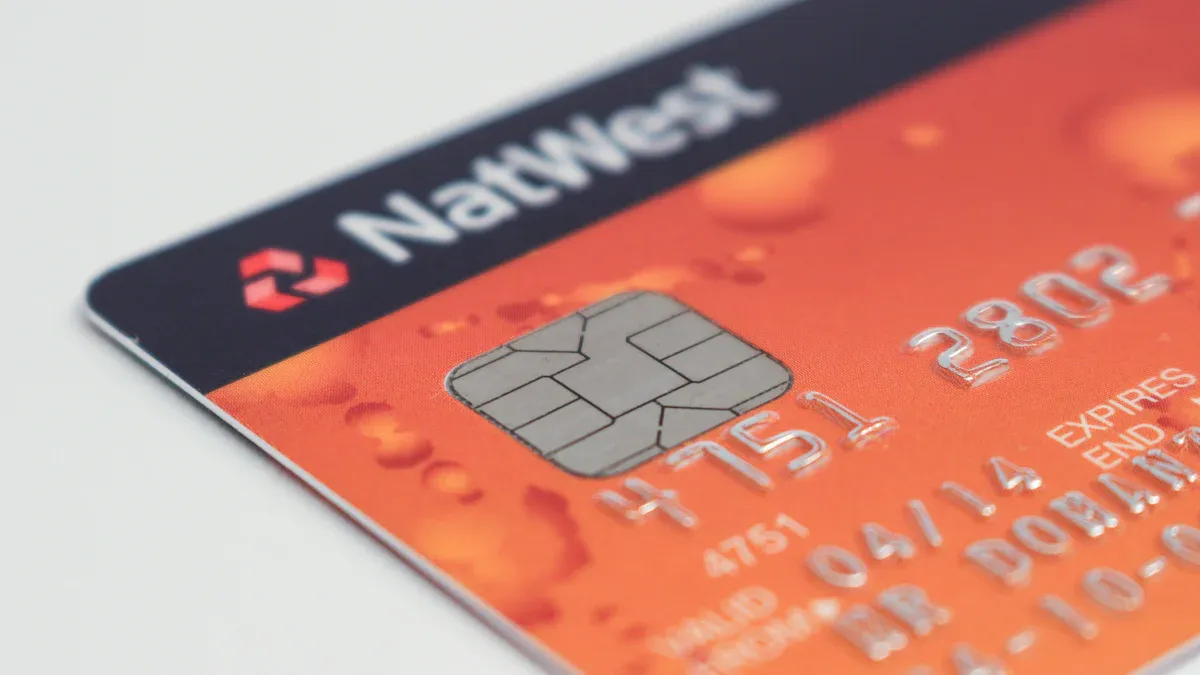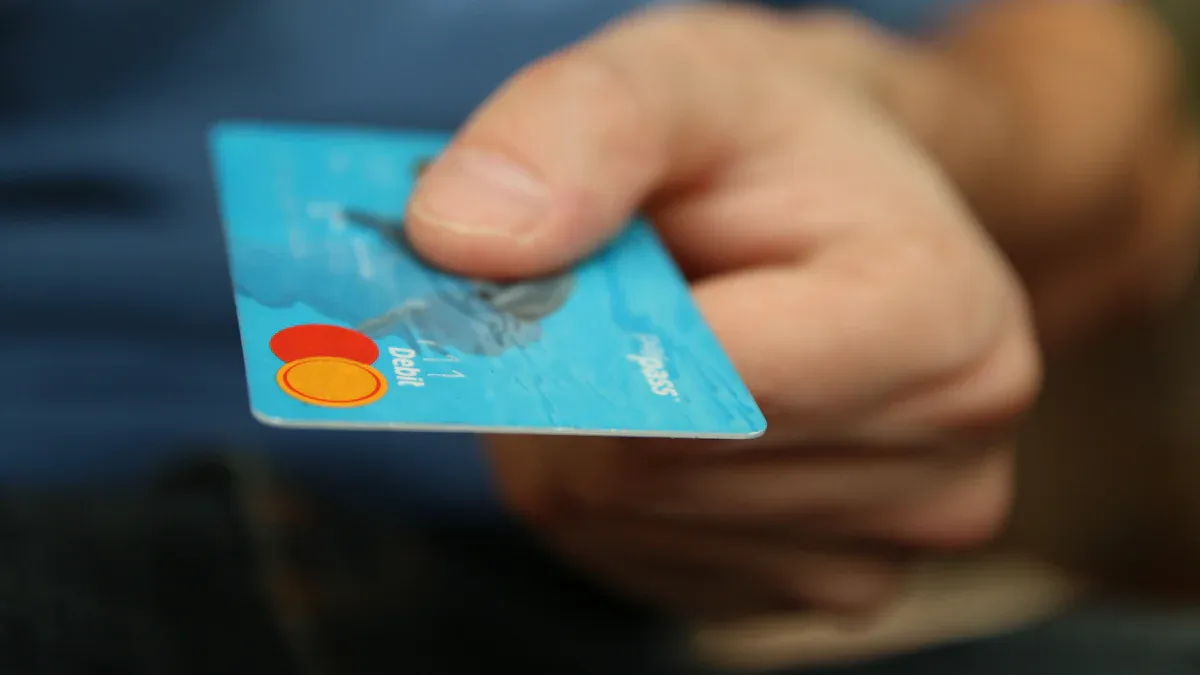What is a Routing Number and Why Does It Matter
Author:XTransfer2025.04.23Routing Number
A routing number is a nine-digit code for U.S. banks. It works like an address, helping money go to the right place. These numbers are important for safe and correct money transfers.
Routing numbers are key for today’s banking. For example:
-
The ACH Network handles payments for U.S. banks using routing numbers.
-
Many routing numbers change every year, so updates are needed.
-
Old routing numbers can cause failed payments, wasting time and money.
With more direct deposits and online payments, routing numbers are even more important. They help payments work smoothly and avoid mistakes, making them a big part of banking today.
What is a Routing Number?

Definition and purpose of a routing number
A routing number is a nine-digit code for U.S. banks. It works like an address, helping money go to the right place. You’ll see routing numbers when setting up direct deposits, paying online, or moving money between accounts.
The main job of a routing number is to make sure money moves safely and correctly. It helps banks handle payments quickly, whether you’re paying bills, getting paid, or sending money to someone. Without routing numbers, banks couldn’t manage the millions of payments made every day.
The format and structure of a routing number
Routing numbers follow a set pattern to make them easy to read. Each routing number has three parts:
For example, a routing number might look like this: XXXXYYYYC. In this example:
-
XXXXshows the Federal Reserve Bank linked to the institution. -
YYYYidentifies the specific bank or credit union. -
Cis the check digit, which checks if the number is valid.
This format makes sure every routing number is unique and easy to track. It also helps avoid mistakes in payments.
Who assigns routing numbers and their uniqueness
The American Bankers Association (ABA) gives out routing numbers. This ensures every bank or credit union gets its own special code. The ABA started using routing numbers in 1910 to make check processing easier, and they are still important today.
Each routing number belongs to one specific bank or credit union. Big banks may have many routing numbers for different areas, while small banks might only have one. This system avoids mix-ups and ensures money goes to the right place.
Routing numbers can also depend on the type of payment. For example, the routing number for wire transfers might not be the same as the one for direct deposits. This keeps payments accurate and secure.
What is the Purpose of a Routing Number?
Role in direct deposits and payroll processing
A routing number is important for direct deposits and payroll. When your paycheck is sent to your bank, the routing number makes sure it goes to the right bank. This process is faster than using paper checks. Companies also use routing numbers to pay workers on time. Without them, payroll systems would not work well.
Routing numbers help avoid mistakes in payments. They show which bank should get the money. This is very helpful for businesses with many employees. Knowing how routing numbers work shows why they are so important for payroll systems.
Importance in ACH payments and wire transfers
Routing numbers are needed for ACH payments and wire transfers. ACH payments are used for things like bills or subscriptions. The routing number makes sure the money goes to the right bank. For example, when you set up automatic bill pay, the routing number helps send the money correctly.
Wire transfers, used for fast or international payments, also need routing numbers. They show which bank should get the money quickly. Each routing number is unique, so errors are less likely. Whether paying bills or sending money abroad, routing numbers make it safe and easy.
Use in online banking and bill payments
Routing numbers are key for online banking and paying bills. When you pay bills online, the routing number sends the money to the right place. It also helps move money between different banks. For example, if you send money to a friend, the routing number finds their bank.
Routing numbers also help with automatic bill payments. They let companies take money from your account for regular bills. This helps you avoid late fees and manage your money better. These numbers were first made for checks but are now used for online payments too.
How to Find Your Routing Number

Finding the routing number on a check
You can find your routing number on a check. Look at the bottom of any personal check. The first nine numbers on the left are the routing number. After that, you’ll see your account number and the check number.
This setup makes it easy to spot the routing number. It helps banks process payments quickly and correctly. If you’re confused, just remember the routing number is always the first set of digits. This method works for most personal and business checks.
Checking your bank’s app or website
If you don’t have a check, use your bank’s app or website. Log in to your account and look for “Account Information” or “Routing Numbers.” Most banks list routing numbers in these sections.
Some banks also have a routing number search tool online. This tool helps you find the right number for your branch or account type. Using digital tools is quick and ensures you get the correct routing number.
Asking your bank for help
If you can’t find your routing number, ask your bank for help. You can visit a branch, call customer service, or ask at the drive-through.
Big banks may have different routing numbers for different locations or transactions. Talking to a bank worker ensures you get the right number. If you’re unsure, don’t hesitate to ask. Bank staff are trained to help and can guide you easily.
Routing Number vs. Account Number
Definition and purpose of an account number
An account number is a special code for your bank account. It helps you manage different accounts at the same bank. Think of it like your account’s unique ID. Each account number is different, making sure your transactions are correct. Here’s what an account number means:
How routing numbers and account numbers work together
Routing numbers and account numbers work as a team. The routing number shows the bank’s location, while the account number points to your specific account. Together, they make sure money goes to the right place. Here’s how they help in different situations:
-
Direct Deposit: Your employer uses your account number to send your paycheck.
-
Online Payments: Companies use your account number to take payments.
-
Check Writing: Banks use your account number to know which account to use.
Key differences between routing numbers and account numbers
Knowing the difference between routing numbers and account numbers is important. Here’s a simple comparison:
-
Routing Number: A nine-digit code that shows the bank’s location. It helps with direct deposits and wire transfers.
-
Account Number: An 8-12 digit code for your specific account. It identifies your account for transactions.
Both numbers are needed to process payments correctly. Understanding these helps you handle banking tasks easily.
Why Routing Numbers Matter
Keeping money transfers safe and correct
Routing numbers are very important for safe and correct money transfers. They work like special codes for banks, making sure money goes to the right place. When you use a routing number, it checks if the transaction is real and builds trust between people or businesses. For example, banks use routing numbers to handle online payments, direct deposits, and automatic bill payments. This system makes sure your money gets to the right person or company safely.
Routing numbers also stop others from accessing your money without permission. By pointing to the right bank, they lower the chances of mistakes or fraud during transfers. This makes them a key part of the U.S. banking system, which handles millions of payments every day.
Avoiding mistakes in money transfers
Using the right routing number helps you avoid big problems with money transfers. Imagine sending money to the wrong bank because the routing number was wrong. This could slow down the payment or even make it fail. Routing numbers help avoid these issues by making sure each payment goes to the correct bank.
For businesses, routing numbers are very helpful. They let companies pay workers, pay bills, and handle other money tasks without mistakes. Even for personal payments, like paying bills or sending money to friends, routing numbers make sure everything is done right and on time. Always check your routing number to avoid delays or problems.
Helping the banking system run smoothly
Routing numbers are a big part of how banks work well together. They help banks send and receive payments without any trouble. Without routing numbers, banks would have a hard time managing all the payments made every day.
Each routing number is unique, so there’s no mix-up between banks. This keeps the system running smoothly, even when there are lots of payments happening. Whether you’re setting up direct deposit or paying online, routing numbers make the process fast and reliable.
Routing numbers are important for moving money safely and quickly. They make sure your money goes to the right place. You need them for direct deposits, paying bills, or sending money.
Using the right routing number stops mistakes and delays. This easy step saves time and keeps payments correct. Always check your routing number before sending money. It’s a simple way to make banking easy and worry-free.
FAQ
What makes a routing number different from a bank account number?
A routing number shows which bank you use. A bank account number points to your specific account. Together, they make sure money goes to the right place. Think of the routing number as the bank’s location and the account number as your personal mailbox.
Can two accounts at the same bank share the same account number?
No, each account has its own unique number. Even if you have more than one account at the same bank, each will have a different number. This keeps transactions accurate and avoids mix-ups.
Why do some banks use more than one routing number?
Big banks often have several routing numbers. These numbers may be for different areas or types of payments. For example, one number might be for wire transfers, while another is for direct deposits. This helps banks handle payments better.
Is it okay to share your routing and account numbers?
Yes, it’s usually safe to share these numbers for trusted reasons. Examples include setting up direct deposits or paying bills. But don’t share them with strangers or untrusted sources to keep your account safe.
How can you check your routing and account numbers?
You can find these numbers on a check, in your bank’s app or website, or by asking your bank. Always double-check them before sharing to avoid mistakes in payments.
Related content